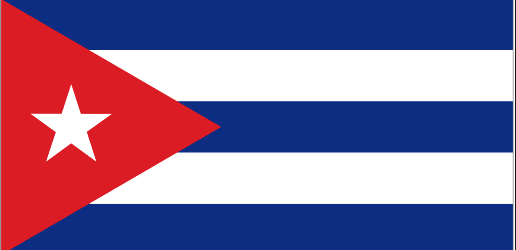College of Arts and Sciences offers two new Cuba programs

Cuba 092016
September 18, 2016
Kent State offers program to study abroad in Cuba from KentWired.com on Vimeo.
The Kent State College of Arts and Sciences’ new Cuba trips were among dozens of study abroad opportunities presented in Thursday’s Education Abroad Expo. Both programs travel to Cuba during Kent State’s 2017 spring break from March 24 to April 2.
The two programs are “Afro-Cuban Religions: Spirit, Myth, and Reality” led by Evgenia Fotiou, assistant professor of anthropology, and “Demystifying Cuba” led by Julie Mazzei, political science interim chairperson, and Andrew Barnes, academic department chairperson.
Due to improved relations between America and Cuba, Cuba’s borders were reopened in 2015 to allow travel. Architecture students were the first group of Kent State students to travel to Cuba in March.
According to Kristin Stasiowski, assistant dean of Arts & Sciences, the process of creating the two Cuba programs started in May, with faculty members Fotiou and Mazzei creating a syllabus for what they thought was interesting in Cuba.
The College of Arts and Sciences education abroad then researched and met with travel agencies to make travel itineraries.
For the “Afro-Cuban Religions: Spirit, Myth, and Reality” itinerary, the College of Arts and Sciences education abroad worked with the Cuban Institute of Anthropology, and for the “Demystifying Cuba” itinerary, they worked with the Cuba Educational Travel agency, Stasiowski said.
The dean of the College of Arts and Sciences, James Blank, had to approve of the itineraries. The creation of the Cuba programs took about six weeks.
The “Demystifying Cuba” program aims to show students just how different Cuba is from the way it has been portrayed over the years.
The program is a three-credit course where students will meet for four weeks of course work at Kent State before the trip. Students will learn Cuba’s history and the challenges it has experienced, as well as see firsthand Cuba’s vibrant culture and people.
Mazzei, also a political science professor, has been to Cuba three times and designed the program herself to show students the true Cuba.
“Americans have this false understanding of Cuba,” Mazzei said. “It’s important for students to demystify Cuba, hence the name.”
The “Afro-Cuban Religions: Spirit, Myth, and Reality” program aims to teach students Cuba’s African-derived religions and how it affects Cuba’s culture.
Fotiou has been to Cuba twice. Fotiou has partnered up with the Cuban Institute of Anthropology in Old Havana to enrich the program.
“It’s very rich,” Fotiou said. “For a week, we’re getting a lot done.”
Students who attended the Education Abroad Expo seemed interested in the Cuba programs.
Becca Turner, a junior psychology major, thought that Cuba seemed like somewhere she’d like to travel to.
“I’d love to see the area,” Turner said. “I know it’s beautiful in Cuba. Cuba has such a different culture from ours.”
Anna Mika, a sophomore anthropology major, would also travel to Cuba.
“Cuba is very different from America, so it would provide a different life experience,” Mika said. “Cuba is becoming friendlier with America, so it’s probably a lot safer than it has been in the past.”
Mazzei and Fotiou stress the importance of traveling to Cuba and seeing firsthand just how safe and exciting the country is.
“Cuba is amazing,” Mazzei said. “It’s the best and safest experience.”
“I had very romantic ideas of Cuba before I went,” Fotiou said. “I knew a little bit about the revolution, a little bit about the music and the Afro-Cuban element. I was in love with the music. I didn’t know a lot about the religions until three years ago.”
After going to Cuba, Fotiou’s opinions of Cuba changed.
“Going to Cuba changed my perspective, so now maybe I don’t have that romantic idea,” Fotiou said. “Now it’s more grounded to reality. I love the people there. I still love the music. I love the art. It’s a difficult place to be because of the isolation that has been going on for many decades, so a lot of the things that we are used to in the U.S. might not be easily available. However, it can be a very fulfilling experience.”
Stasiowski also sees the importance of studying abroad in Cuba.
“I’d like for a student to be able to compare what is a stereotype or a preconceived notion about Cuba, and then realize after they come away from time in Cuba just how often it happens that we have totally incorrect or uninformed ideas about things,” Stasiowski said. “We should really look to break down those barriers and learn to be a little bit more patient, a little bit more discerning, a little bit more tolerant and a little bit more informed before we offer an opinion or judgement about something.”
Any student from any major is allowed to travel Cuba with the two programs.
“Demystifying Cuba” has 12 spots for students and “Afro-Cuban Religions: Spirit, Myth, and Reality” has 15, so space is limited. The deadline to register for the programs is Nov. 1, 2016.
Questions should be emailed to Kristin Stasiowski at [email protected], Evgenia Fotiou at [email protected] and Julie Mazzei at [email protected].
Contact Mckenna Corson at [email protected].











